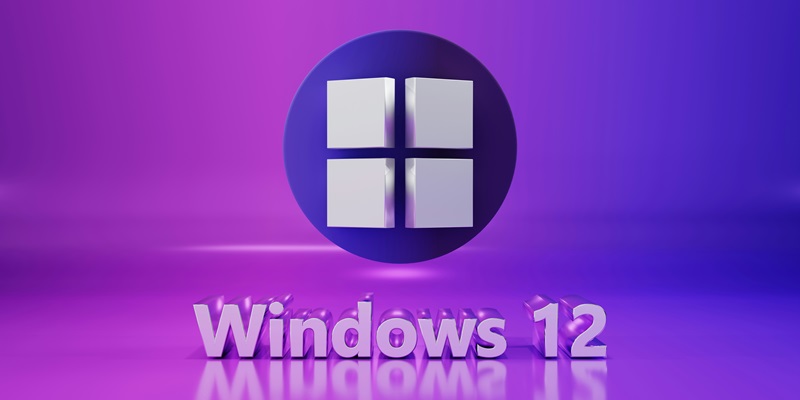As Microsoft signals the impending end of support for Windows 10, a major transition looms for millions of users worldwide who must decide whether to embrace Windows 11 or hold out for the company’s next potential offering—Windows 12. Speculations abound regarding what features this new system might introduce, and while Microsoft has not officially confirmed Windows 12, various rumors and conceptualizations have generated significant buzz.
The Vision for Windows 12.1
Conceptualizing an Ideal Operating System
The excitement surrounding Microsoft’s forthcoming operating system has spurred creative minds to envision what Windows 12 might look like. One such vision is presented by concept creator AR 4789, who has imagined an ideal version of Windows 11, dubbed Windows 12.1. This concept is more than just a reimagining; it offers a comprehensive redesign aimed at addressing longstanding issues and modernizing the user experience. AR 4789’s concept video stands out for its ingenuity, showcasing an operating system with a seamless installation process that allows users to play games or browse the web while the OS is being set up. This feature alone marks a significant shift from traditional, often tiresome installation procedures.
The minimalist aesthetic of AR 4789’s concept is another striking element, featuring a modern taskbar and Start menu that integrate functionality and style. The redesigned File Explorer promises greater cohesion and ease of use, addressing common complaints about the fragmented and sometimes inconsistent user interface of past Windows versions. This concept doesn’t just aim for visual appeal; it emphasizes functionality, ensuring that each change enhances the overall user experience.
Key Features and Innovations
One of the standout features in AR 4789’s vision for Windows 12.1 is a more interactive lockscreen. Unlike traditional lockscreens that offer limited customization, this one allows users to swiftly change the background by simply swiping. This feature exemplifies the broader trend in tech design towards customization and personalization, giving users more control over their digital environments. Another noteworthy, albeit briefly mentioned, feature is the appearance of Copilot. While not the focal point of the concept, Copilot’s inclusion hints at the increasing role AI may play in future operating systems.
The concept’s unified design contrasts sharply with the usual inconsistencies found in Microsoft’s official releases. Such inconsistencies have led to the development of third-party tools like Rectify11, designed to create a more cohesive user experience. AR 4789’s vision, in contrast, appears inherently cohesive, suggesting a more thoughtful and integrated design approach. This move towards a unified visual and functional experience could signify a new direction for Microsoft, aligning more closely with user expectations for a modern, intuitive OS.
A Shift Towards Modernity
User Expectations and Industry Trends
As Microsoft prepares to transition away from Windows 10, there is a growing anticipation for an operating system that not only meets but exceeds user expectations for modernity, coherence, and user-friendliness. The consensus among users and industry analysts is clear: the next Windows OS should resolve the fragmented design issues of the past and offer a more polished, seamless experience. AR 4789’s Windows 12.1 concept encapsulates these desires, setting a high bar for what users might expect from Microsoft’s next big release.
This trend towards an advanced, thoughtful design is not unique to Microsoft. Across the tech industry, there is a noticeable shift towards creating products that offer a more integrated and cohesive user experience. Companies are increasingly relying on modern user-interface practices and AI features to enhance usability and functionality. Microsoft’s potential adoption of these trends could position it well in a competitive market, meeting the growing demands of users who seek not just tools, but intuitive and aesthetically pleasing digital environments.
Analysis and Future Expectations
As Microsoft signals the approaching end of support for Windows 10, millions of users around the globe face a significant decision: upgrade to Windows 11 or wait for what might be Microsoft’s next release, potentially named Windows 12. The uncertainty surrounding the exact features and capabilities of this future operating system adds to the complexity of this decision. While Microsoft has yet to officially confirm the development of Windows 12, various rumors and conceptual mock-ups have created quite a stir in the tech community.
Windows 10, which has been a reliable operating system for many, is nearing its final chapter, prompting users to reconsider their next steps. The promise of new features and enhanced performance in Windows 11 certainly makes it an appealing choice. However, the tech-savvy and cautious alike are speculating about whether it is worth holding out for Windows 12, which might incorporate even more advanced innovations. The timeline and specific details of Windows 12 remain unclear, but the buzz around it reflects a high level of anticipation and curiosity.

